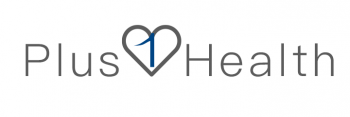One in ten people in life is accompanied by light or heavy snoring during sleep. Many people think this is an uncommon symptom. As we don’t know, snoring during sleep may also be accompanied by a potential disease. Namely sleep apnea syndrome.
Sleep apnea syndrome is a sleep disorder that stops breathing during sleep. If it is not treated in time, it will be very harmful to the body. It may cause high blood pressure and coronary heart disease; in severe cases, it may cause respiratory failure and sudden death; sleep quality decline, myocardial infarction, and stroke. It is recommended that patients go to the hospital for treatment in time to avoid aggravation of the condition.
Sleep apnea syndrome is a common disease in daily life. There are many reasons for the disease, such as blockage of the upper airway, frequent snoring, body twitching, or arm shaking. But if you don’t get treatment in time, it will be very harmful to your body. So, what harm does sleep apnea syndrome do to the body? Let’s find out together.
1.Damage to the kidneys
Sleep apnea syndrome can damage the kidneys because the upper airway is closed, the negative pressure in the chest cavity is increased, and the pulmonary vasoconstriction leads to dilation of the right atrium, which can also stimulate the secretion of atrial natriuretic factor to a certain extent. Specific clinical manifestations include increased urine, edema, and renal insufficiency in severe cases.
2.Effects on the nervous system
After suffering from sleep apnea syndrome, the patient’s blood sample saturation decreased a lot. Specific manifestations include hallucinations before going to bed, limb twitching after falling asleep, and convulsions. In addition, the body may also have symptoms of weakened intelligence and decreased memory.
3.Harm to the mental system
Among patients with sleep apnea syndrome, approximately 56% have gloom, 38% have hypochondria, and 29% have conversion hysteria. Of course, there are also individual patients who will show manic psychosis or paranoid psychosis.
4.Impact on cardiovascular
30% of patients with hypertension have obstructive sleep apnea syndrome, and 45% of patients with sleep apnea syndrome have hypertension. Such hypertensive patients have lost their normal circadian rhythms, and their blood pressure is high when they wake up in the morning, which is not easy to control even with medication.
The hazards of sleep apnea syndrome are mainly in the above four aspects. When patients snoring while sleeping, they need to be vigilant. If they are accompanied by repeated apneas, they should go to the hospital as soon as possible. Local, systemic or comprehensive treatment. After a period of treatment, the patient will be able to regain his health.
Snoring during sleep may hide such a serious disease. Many people are wondering how do I know if I am snoring during my sleep or snoring is accompanied by apnea? The “Snore Tracker” app can assist in detecting whether there is apnea during snoring and sleep.
